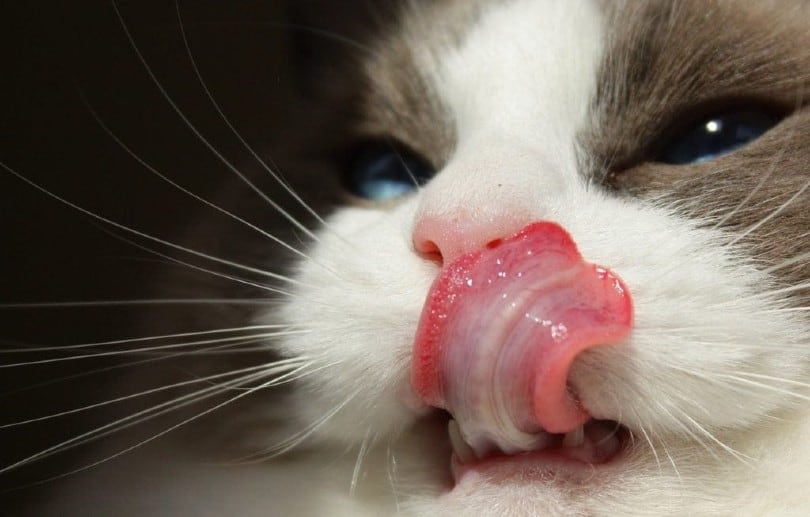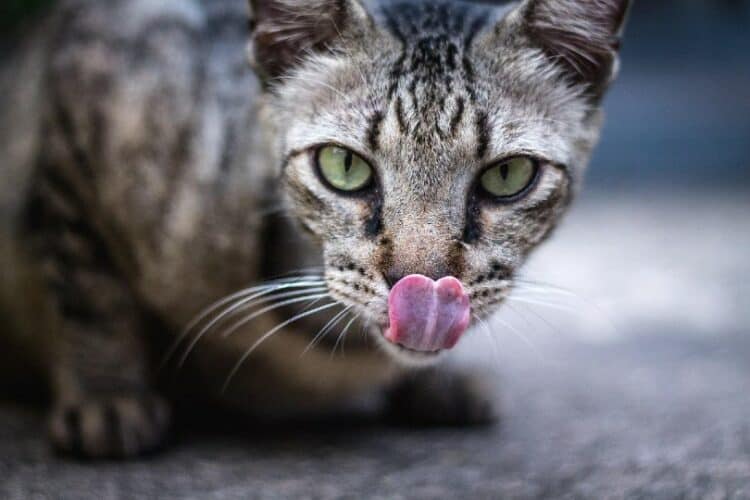If you’re a cat lover, you’ve likely been quite charmed when your cat shows you affection by grooming you. It can be a very sweet and touching thing for your cat to do, and many people consider a cat licking or grooming them to be a sign of affection and comfort.
As charming as cat people find this, other people may have told you all about how dirty your cat’s tongue is, but is this actually true? If cats have dirty tongues, why do they groom themselves by licking?
Do Cats Have Clean Tongues?
While cats may use their tongues to clean, it’s a far-fetched idea to call your cat’s tongue clean, considering all of the things your cat’s tongue comes into contact with. Not only does your cat lick their fur clean, but they may lick their genitals after going potty, and their tongue definitely comes into contact with cat food, and for outside cats, their tongues likely come into contact with dead animals.
Although science has identified some potentially antiseptic properties in feline saliva that may help support cleanliness and wound healing, dangerous bacteria have also been identified in cats’ mouths. Cat bites carry a high risk of infection, so it’s safe to say that your cat’s tongue likely carries the same bacteria that your cat’s teeth and saliva carry.

Why Do Cats Groom Themselves?
If cats don’t have clean tongues, why do they groom themselves with their tongues? There are multiple reasons that cats not only clean themselves with their tongues but do so successfully. Cat tongues feature unique spines that are efficient at removing loose hair and dander, as well as moving secretions around on the coat and getting through the coat to clean the skin.
Cats might be somewhat resistant to the bacteria in their own mouths, so their tongues often help them clean wounds without the same risk of infection that would be present if your cat attempted to clean a wound on you with their tongue.
It’s also believed that cats groom themselves to move oils around on their skin and coat, as well as to help cover their own scent. By covering their own scent, cats can be more effective predators by not giving their position away to prey animals. It isn’t just domestic cats that groom themselves with their tongues, but also wild cats of all sizes.
Conclusion
While cats may have some antiseptic properties in their mouths, they also carry quite a bit of bacteria, with some of that bacteria being dangerous. Ideally, you should avoid letting your cat lick you since this does create a risk of your cat transferring dangerous bacteria to you.
However, many of us are too charmed by having a cat give little love licks to stop them. If your cat does lick you, it’s important that you thoroughly wash the area with soap and water after your cat is finished to reduce the risk of infection transmission to you from your cat.
Featured Image Credit: Pixabay














